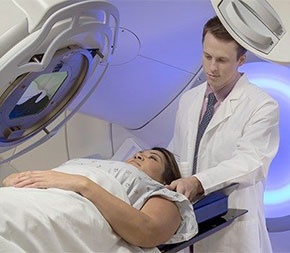
Radiation Therapist At a Glance
Education and Training
Radiation therapist programs can range from 1-to-2 years. One-year programs result in a certificate or diploma, while students in 2-year programs will earn associate’s degrees.
One-year programs emphasize supervised clinical education in training facilities like hospitals. The associate’s degree provides in-depth training that focuses both on theoretical knowledge (in the classroom) and hands-on experiences.
Licensing and Certification
There are no certification requirements, but employers often prefer Certified Radiation Therapists, who have passed national examinations that verify their professional skills and knowledge.
The most widely recognized certifying body is the American Registry of Radiologic Technologists (ARRT). Certified radiation therapists must meet education and clinical competency standards set by the ARRT.
Radiation therapists can take the national exam after completing an accredited training program, or after working full-time for two years. Radiation therapists who pass this exam become Certified Radiation Therapists and can renew their certification annually.
Median Annual Radiation Therapist Salary
Take a look at median annual salaries by state for radiation therapists, as reported by the U.S. Bureau of Labor Statistics.
Career Path and Advancement
A career as a radiation therapist offers a spectrum of opportunities for professional growth and advancement. Initially, radiation therapists may start by administering radiation treatments and managing patient care. With experience, they can specialize in areas such as pediatric oncology or brachytherapy, further refining their expertise.
Advanced positions often include supervisory roles, where therapists manage teams, oversee treatment planning, and ensure adherence to safety protocols. For those interested in a broader scope, transitioning into medical physics or radiology offers a path to delve into the more technical aspects of patient imaging and radiation treatment planning.
Some therapists advance their careers by moving into research, education, or sales roles within the medical equipment industry. This diversity in career trajectories underscores the dynamic and evolving nature of the radiation therapy field, catering to various interests and skill sets.
Skills and Qualities Required
The role of a radiation therapist is both technical and empathetic, requiring a unique blend of skills and personal qualities. Technically, a strong foundation in physics, anatomy, and radiation therapy procedures is paramount. Therapists must be detail-oriented to accurately deliver treatment plans and monitor patient progress.
Interpersonal skills are equally critical; they must communicate effectively with patients and families, often in stressful or emotional situations, and work collaboratively with medical teams. Empathy and compassion are essential in providing support and reassurance to patients undergoing treatment.
Additionally, problem-solving skills and adaptability are crucial, as therapists must be able to respond to changing patient conditions and advancements in treatment technology. The ability to work as part of a medical team, often under pressure, is a hallmark of successful radiation therapists.
Challenges and Rewards of the Profession
A career in radiation therapy is marked by a unique set of challenges and rewards. Therapists often work with patients undergoing emotionally and physically taxing cancer treatments, which can be emotionally challenging. They witness the struggles and sometimes the decline of their patients, requiring emotional resilience and the ability to provide compassionate care despite personal feelings.
Balancing clinical responsibilities with the emotional aspects of patient care is a significant challenge. On the flip side, the profession is immensely rewarding. Radiation therapists play a crucial role in the fight against cancer, often forming close bonds with patients and their families. The satisfaction of contributing positively to patient care, witnessing treatment success, and being part of a life-changing medical journey is unparalleled.
Additionally, the field is continuously evolving, offering ongoing learning opportunities and the excitement of working with cutting-edge technology. These rewards make radiation therapy a fulfilling and meaningful career choice. If you’re ready to explore radiation therapy schools, use our handy “Find Schools” widget to browse through vetted programs